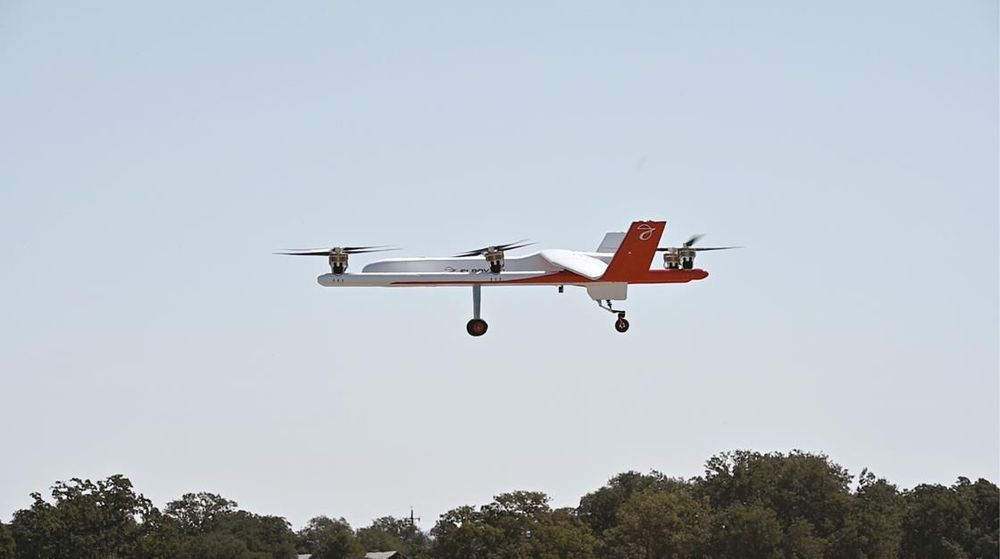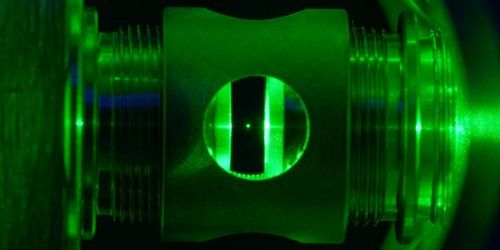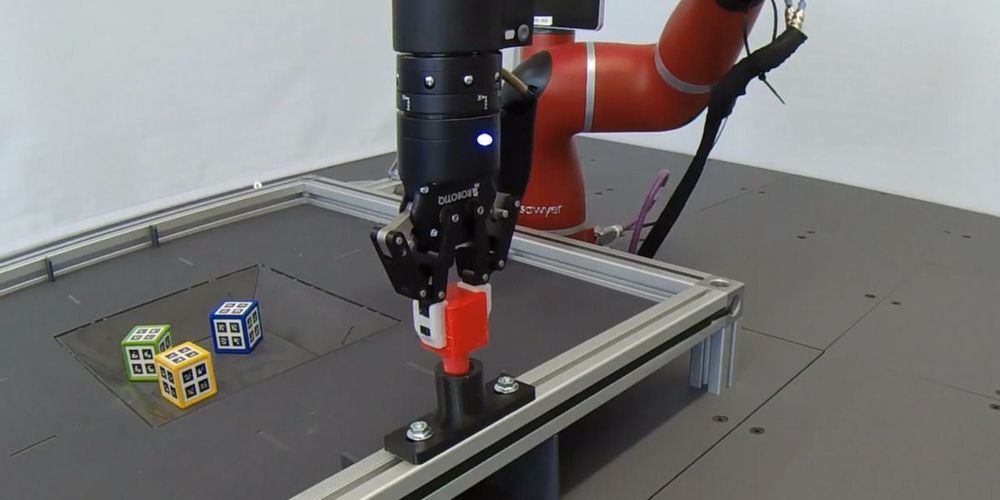Years of investment in basic science of cancer therapeutics are “starting to pay off,” an expert said.



EmbraerX, the Brazilian planemaker’s innovation subsidiary, has signed a collaboration agreement with Silicon Valley drone delivery startup Elroy Air for the purpose of developing the unnamed air cargo market worldwide.
The announcement, made at the Consumer Electronics Show in Las Vegas on 8 January, positions Embraer as an “ecosystem player” in the area of urban air mobility, the disruptive business subsidiary’s president and chief executive Antonio Campello tells FlightGlobal.
The companies did not disclose details about the collaboration such as time frame or cost, but say they are already at work together and hope to present results soon.


Stephen Hawking passed away on 14 March 2018. His work changed literally everything we know about the cosmos and our place in it. But his greatest contribution to our species wasn’t his theories on black holes or how quickly the universe was expanding, it was his humanity.
Professor Hawking was born on 8 January 1942. He would have been 78 years old today – a bit older than ‘boomer’ age, his generation was called the “Silent” one. In his early twenties he was diagnosed with Lou Gehrig’s disease (ALS). Eventually he became paralyzed and could only speak with the assistance a computer-generated audio device.
If this works that would be awesome.
It is estimated by The National Kidney Foundation that over 100,000 patients are on the waiting list for kidney donors. A further 3,000 names are added to the list every year. An average patient has to wait for 3.6 years for a viable transplant. The patients are treated with dialysis while they are waiting for a transplant and only one in three patients survive for more than five years without a transplant. All that could change as scientists have developed the world’s first artificial kidney.
This bio-hybrid uses living kidney cells along with a series of specialized microchips powered by the human heart to filter waste from the blood-stream. The artificial kidney can bypass the complication of matching donors and tissue rejection. To address this unmet need, William Fissell from Vanderbilt and Shuvo Roy from the University of California, San Francisco (UCSF) launched The Kidney Project.
“We can leverage Mother Nature’s 60 million years of research and development and use kidney cells that fortunately for us grow well in the lab dish, and grow them into a bioreactor of living cells,” explained Fissell in a recent article published by Research News Vanderbilt. Fissel claims that it can reliably distinguish between waste chemicals and the nutrients that need to be reabsorbed by the body.

Optically levitated nanosphere shows definitive signature of its quantum ground state of motion.
Picture a marble rolling around inside a bowl. The motion of the marble represents its center-of-mass temperature, a quantity distinct from the object’s physical temperature. Now replace the marble with a levitated nanosphere and the bowl with an optical trap, and you have the experiment used by Felix Tebbenjohanns and colleagues at the Swiss Federal Institute of Technology (ETH), Zurich, to reduce a levitated nanoparticle’s center-of-mass temperature to close to its quantum ground state. The experimental signature showing that the nanosphere had entered the quantum regime had, until now, been seen only in mechanically clamped systems coupled to optical cavities.
Combining Maxar’s capabilities in robotics, spacecraft and space systems operations creates the opportunity to deploy and maintain revolutionary new space architectures. Since the dawn of space exploration, pioneers in the field envisioned sustainable space stations enabled by in-space assembly, manufacturing and servicing. Wernher Von Braun conducted a detailed study in 1945 that defined the deployment and construction of the rotating wheel space station. The design included maintaining artificial gravity and oxygen levels. Today, NASA has led the construction and continuous operation of the International Space Station for over 20 years, demonstrating the technical feasibility of large-scale in-space assembly and servicing.
Recently, Maxar has been working with NASA on concepts for both human-tended and uncrewed sustainable space platforms. These in-space assembled structures provide basic functions and a modular interface for new and evolving payloads and missions. The lunar orbiting Gateway will be one such platform where the Maxar-developed Power and Propulsion Element will provide the foundation of power, maneuvering, communications systems and initial docking capabilities. Additional Gateway segments will plug-in to the Power and Propulsion Element to make use of these systems. The versatility of the Power and Propulsion Element also allows it to be refueled in orbit, and we are working with NASA to conceive the architecture that could resupply the Gateway with fuel and other essentials.
Another concept we’ve been developing with NASA is an uncrewed “science station” that is constructed in sun synchronous LEO orbit and features science instruments that are robotically installed, upgraded, and replaced over time. This allows for co-location of science instruments, which is often desired or necessary, while eliminating the need to budget for, develop, integrate and launch all the payloads simultaneously on a single launch.


Machine learning and deep learning are both forms of artificial intelligence. You can also say, correctly, that deep learning is a specific kind of machine learning. Both machine learning and deep learning start with training and test data and a model and go through an optimization process to find the weights that make the model best fit the data. Both can handle numeric (regression) and non-numeric (classification) problems, although there are several application areas, such as object recognition and language translation, where deep learning models tend to produce better fits than machine learning models.
